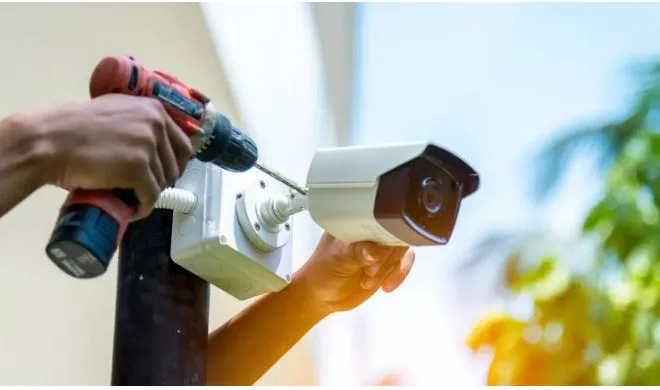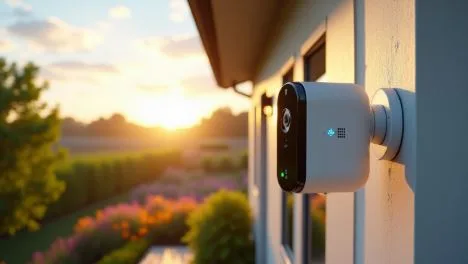Residential vs. Commercial CCTV Installation in Brooklyn – What Are the Differences?
Brooklyn is a borough where historic brownstones stand with modern condos side-by-side and small family-owned shops enjoy bustling neighborhoods with corporate offices. Buildings vary and their security needs vary as well. That is why security camera installation services provided by trustworthy companies always imply understanding the differences between residential and commercial properties and the ways they can develop the most effective solutions.
As experts know how to provide utmost security for any property, be it a family home in Bay Ridge or an office in Downtown Brooklyn, we think it is helpful to talk to some of them. Installers from 718-USA-CCTV, a reliable NY company, share their experience and secrets of perfectly tailored security systems.
Understanding Security Goals
The purpose of CCTV installation may be quite evident; you want to protect yourself and your property. However, the difference between securing residential and business property is in its focus.
For Residential Property:
- Break-ins, vandalism, and porch theft deterrence.
- Children, elderly family members, and pets monitoring.
- Identification of unknown visitors.
- Inner comfort and peace of mind when staying away from home.
For Commercial Property
- Security of valuable items.
- Monitoring of customer activity and employee behavior.
- Liability reduction in case of disputes and accidents.
- Ensuring regulatory compliance.
As you can see, residential CCTV solutions prioritize comfort and safety. As for commercial packages, they are aimed to provide utmost liability and enhanced risk management.
Structure and Coverage
The requirements to the scope, priority, and equipment for CCTV installation at home or for business also vary. Let us see how security camera solutions are developed by 718-USA-CCTV installers.
For Residential Properties:
- From 2 to 8 cameras are usually needed.
- The focal points are entries, driveways, backyards, and garages.
- Wireless camera models are more popular.
- Cameras may be easily controlled via smart platforms and mobile applications.
For Commercial Properties:
- The setup may involve from 2 to 10 and even more cameras.
- Larger coverage is required for such properties as stockrooms, sales floors, parking lots, loading docks, etc.
- Advanced networking based on IP and NVR technologies provide steady connection under any conditions.
Also, business centers and big stores usually have integrated multi-camera systems with their own security office and round-the-clock monitoring.
Specifications and Characteristics
Choosing cameras for a video surveillance system is not a matter of visual appeal or spontaneity. Hardware must offer certain specifications which provide the highest possible level of security.
For Residential Property:
- Mid-range resolution (from 1080p up to 2K);
- Wireless kits or hybrid CCTV solutions.
- Motion alerts and night vision as extra features.
- Cloud, NVR, or SD card storage.
For Commercial Property:
- High-resolution, mostly 4K for IP cameras.
- Pan-Tilt-Zoom (PTZ) cameras which provide flexible monitoring.
- Enhanced night vision and low-light features for stable and high-quality performance.
- Long-range recording supported by NVRs or cloud storages.
- AI-powered tools, such as facial recognition, heat mapping, people counting, and others.
Naturally, security camera solutions may be improved and extended to meet exact challenges, but the components are mostly as those listed above.
Integration with Smart Systems and Security Technologies
As goals for residential and commercial CCTV solutions are different, integration of video surveillance also implies various components to meet exact security needs and expectations.
For Residential Property:
- Voice assistants (Google Home, Alexa, etc.).
- Integration with smart locks, lighting and alerts.
- Mobile applications which provide utmost comfort and flexibility.
For Commercial Property:
- Alarm systems, access control, and inventory equipment.
- Integration into a building management system (optionally).
- Connection to enhanced security solutions to protect data against loss or hacking.
While home security systems integrated with smart technology make property owners feel more comfortable than ever, commercial solutions allow to create a strong network where all areas and properties are under effective supervision.
Conclusion
Any video surveillance system must be tailored to certain needs and requirements. That is why CCTV systems for homes and apartments are not efficient for business and vice versa. In both cases, a security camera solution needs meticulous planning and careful installation, and a reliable installation company is a place to go.






